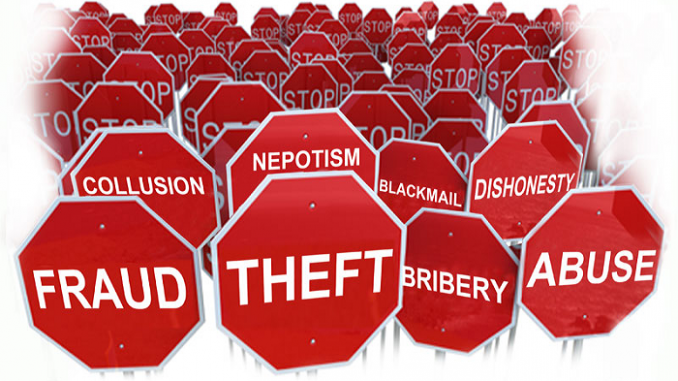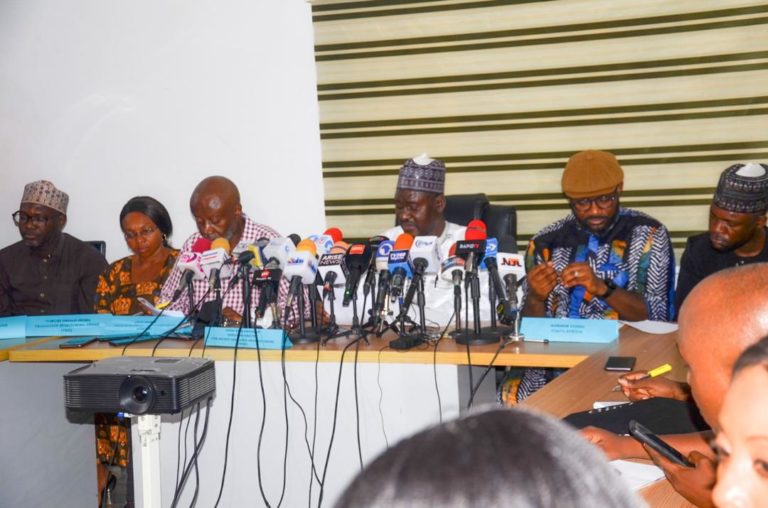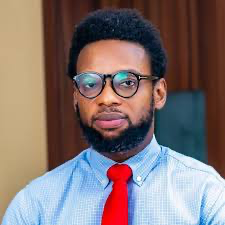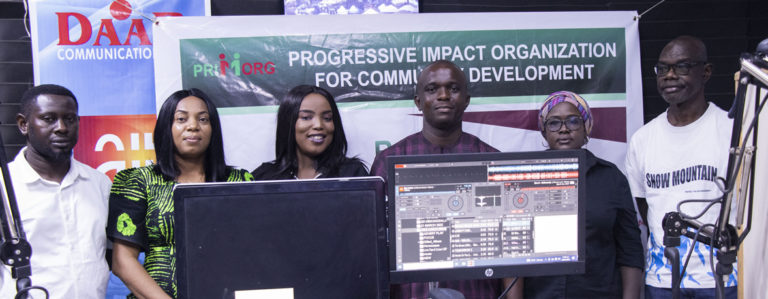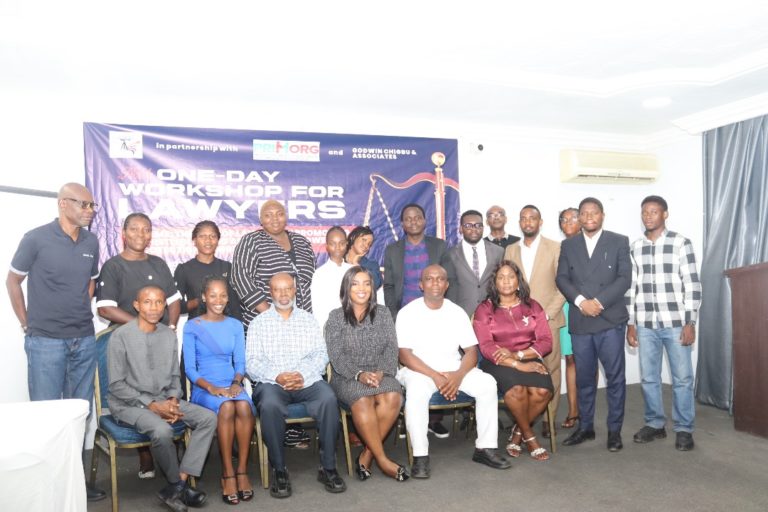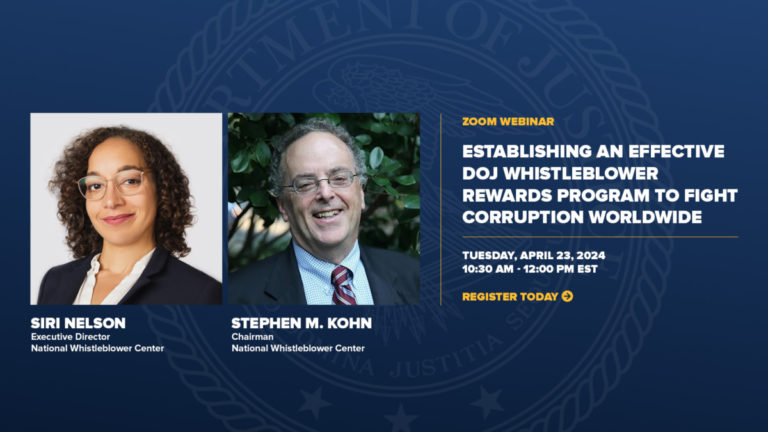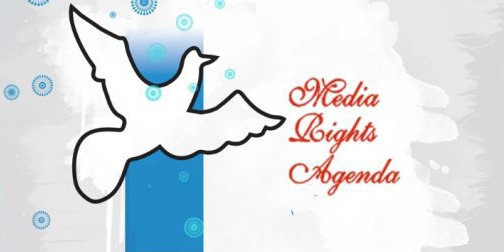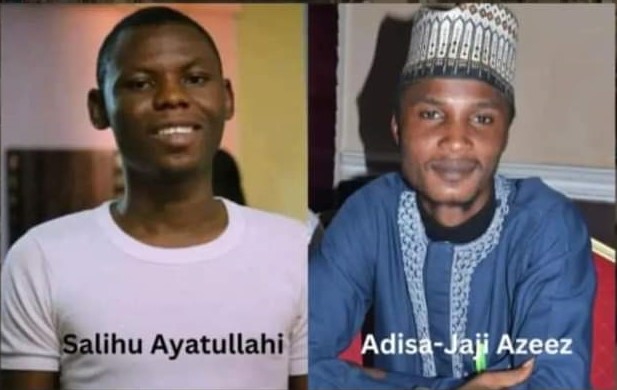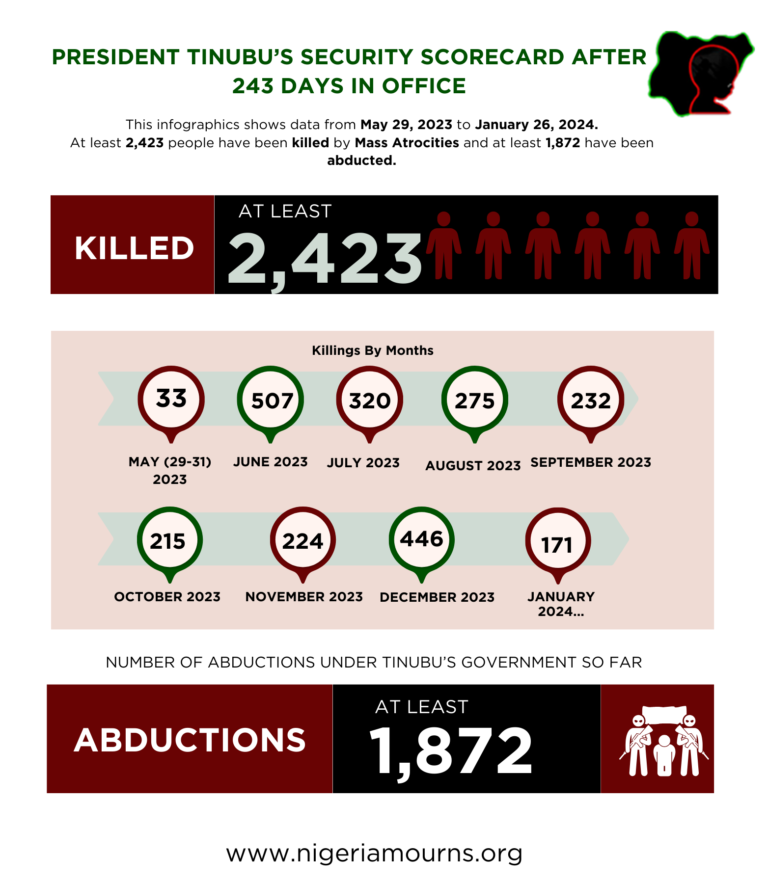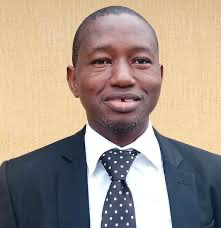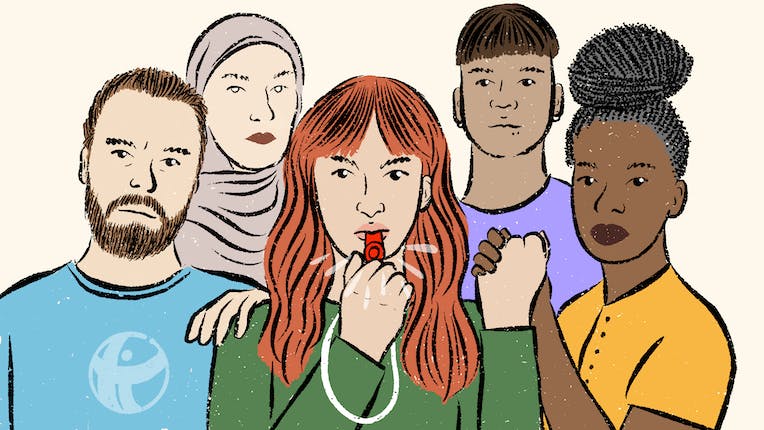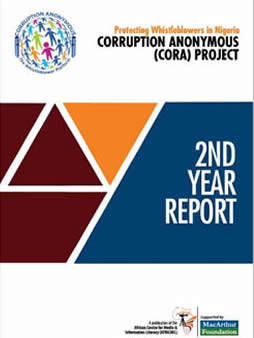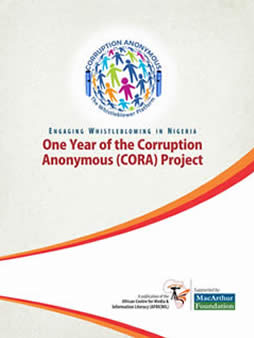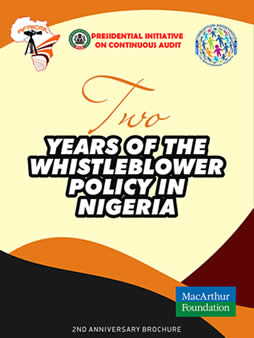By Cristina Albertin*
PROTOCOLS
- The Hourable Speaker of the House of Representative, Mr. Yakubu Dogara
- The Chairman of the House Committee on Financial Crimes, Honourable Kayode Oladele
- Honourable Members of the House of Representative
- Distinguished guests
- Ladies and Gentlemen
Whistleblowers play an essential role in exposing corruption, fraud, mismanagement and other wrongdoing that threaten public health and safety, financial integrity, human rights, the environment and the rule of law. By disclosing information about such misdeeds, whistleblowers have helped save countless lives and vast amounts of public funds, while preventing scandals and disasters from worsening.
Article 33 of the United Nations Convention Against Corruption encourages state parties to develop legal frameworks for whistleblowing and the protection of whistleblowers. UNODC is the guardian of the Convention, and Nigeria played an important role in the negotiations leading to its adoption in 2003, as well as afterwards, in meetings and reviews related to the Convention.
In 2014, Nigeria was peer reviewed for its implementation of the Convention and one of the major findings relates to the whistleblowing. The reviewers noted “Nigeria has not established whistleblower protection measures, although some relevant provisions are contained in the Witness Protection Bill.” It was also noted that Nigeria has not adopted measures for the protection of witnesses, experts and victims, including their physical protection and related evidentiary rules, or relocation agreements with other States.
Whistleblowers often take on high personal risk. They may be fired, sued, blacklisted, arrested, threatened or, in extreme cases, assaulted or killed. Protecting whistleblowers from such retaliation will promote and ease the efficient exposing of corruption, while also enhancing openness and accountability in government and corporate workplaces.
The right of citizens to report wrongdoing is a natural extension of the right of freedom of expression, and is linked to the principles of transparency and integrity. All people have the inherent right to protect the well-being of other citizens and society at large, and in some cases they have the duty to report wrongdoing. The absence of effective protection can therefore pose a dilemma for whistleblowers: they are often expected to report corruption and other crimes, but doing so can expose them to retaliation.
UNODC, as the custodian of the UN Convention Against Corruption, has provided several fora and technical support to state parties to the UN Convention Against Corruption to enable them develop robust frameworks to encourage whistleblowing and protect whistleblowers. In September last year, representatives from 12 countries in West Africa including Nigeria, gathered in Monrovia, Liberia, to discuss whistleblower and witness protection in the fight against corruption. This meeting was organised by UNODC, in partnership with the LACC, the Liberian Anti-Corruption Commission and NACIWA, the Network of National Anti-Corruption Institutions in West Africa.
Participants adopted the Monrovia Statement on Whistle-blower and Witness Protection in West Africa, and formulated a list of priority actions and recommendations per country, with a view to facilitating the establishment of effective whistle-blower and witness protection systems at the national level. The following priority areas were identified for Nigeria:
- Passing into law of a comprehensive legal framework on whistleblowing and witness protection;
- The domestication of international conventions on the fight against corruption (UNCAC, African Union Convention and ECOWAS Protocol);
- Development of a comprehensive whistle-blower and witness protection policy, applicable to the entire country.
- Increasing cooperation among the countries in West Africa through NACIWA, with a view to protecting whistle-blowers and witnesses;
- Setting up a peer-review system among NACIWA members.
The Executive arm of the Nigerian government is to be commended for its interim measure of formulating and implementing the Whistleblowers Policy 2016, which has borne some fruits in furthering investigations of corrupt practices and identifying looted funds.
Gladly now, the National Assembly is consolidating the gains made, by the passage of the Whistleblowers Protection Bill in the Senate and by members of the House of Representatives to do the same, as evidenced by this meeting. Both Chambers of the National Assembly are also encouraged to enact the Witness Protection Bill, which goes in pair with the Whistleblowers Protection Bill.
On this note, I would like to thank the Speaker of the House of Representatives, Chairman of the relevant House Committees and Honourable Members here present for allowing UNODC to participate in this meeting.
I wish us all fruitful deliberations and thank you for your kind attention.
* These remarks were made by Polleak Ok Serei, Project Coordinator, ‘Support to anti-corruption in Nigeria’ on behalf of Cristina Albertin, UNODC Representative in Nigeria, during the House of Representatives Meeting on the Whistleblowers Protection Bill, June 13, 2017, House of Representatives Complex, National Assembly, Three Arms Zone, Abuja, Nigeria.

